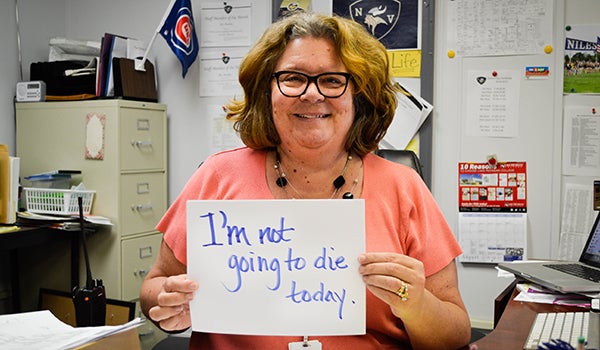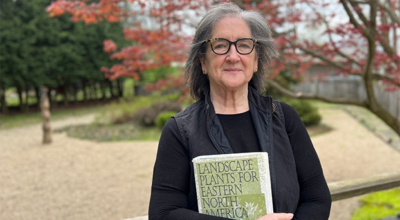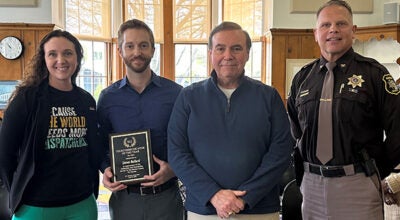NHS principal faces rare form of cancer
Published 9:52 am Thursday, October 26, 2017
Niles High School Principal Molly Brawley has a personal mantra.
“I’m not going to die today.”
These are words Brawley will repeat to herself in her darkest moments, and they have never failed her, she said.
“That’s what gets me through, knowing that it may kill me, but not today,” Brawley said. “Today, I’m going to live.”
In 2007, Brawley was diagnosed with adenoid cystic carcinoma via a tumor in her breast.
Adenoid cystic carcinoma is a rare form of cancer that attacks glands in the body, with most cases of the cancer being found in the neck, according to the Oral Cancer Foundation. While the cancer tends to be slow growing, there is no known cure, and typical cancer treatments, such as chemotherapy are not useful in treating the cancer.
According to observational studies of Adenoid cystic carcinoma, five years after diagnosis, there is an 89-percent survival rate. At 15 years after diagnosis, that percentage drops 40 percent.
It has been nearly 11 years since Brawley was diagnosed. Currently she has seen no signs of cancer recurrence, but said that she lives her life knowing it could come back and chooses to see the positives in her life.
“With this cancer, you never get to say you’re cured,” Brawley said. “But that’s not something I can let define me.”
Brawley felt the first signs of her cancer when she woke up one February morning with a sharp pain her breast. She went to her doctor to have a mammogram done, but her test results came back normal. Knowing something was wrong, Brawley insisted on a biopsy, which came back positive for adenoid cystic carcinoma.
“I asked my doctor all the typical questions, like what will chemo do, and my doctor said, ‘I don’t know I’ve never seen this type of cancer before,’” Brawley said.
Eventually, Brawley went on to have a single mastectomy, which removed both her breast and the tennis-ball sized tumor housed within it.
“From that, I really learned that I have to trust my body,” Brawley said. “Nothing would have happened if I had just said ‘well, the mammogram says I’m fine.’ We need to advocate for ourselves.”
While Brawley admits that her situation is scary and has caused her concern, she said that it has taught her to live her life the best she can at every second.
“I don’t sweat the little stuff anymore,” she said. “There are 52 weeks in the year. For 50 of those weeks, I don’t think about [cancer]. Only the week before my [yearly] scan is when I allow myself to worry.”
Prior to her diagnosis, Brawley said that she constantly worried about everything, including getting cancer. Due to the seriousness of her diagnosis, she said that she could not allow herself to consumed with negativity.
“I found with all the obsessing and worrying I was doing, I might as well have been killed by cancer,” Brawley said. “I figured that I might as well stop worrying about it and not ruin today.”
Choosing to not worry about her cancer does not mean that she does not live with the fear of it, Brawley said. Instead, it means that she chooses to live above it.
One of the ways she does that are by searching for positive research about treatments for adenoid cystic carcinoma. She does not allow herself to look at negative statistics about her diagnosis, Brawley said.
“The statistics are grim,” Brawley said. “If I let myself become consumed with that, I would break down. I know I may never find a cure, but I need to live like there will be one.”
If there is one thing Brawley would like to come out of her situation, it is increased awareness about rarer forms of cancer, which could lead to research to help those cancers.
“Not all cancer is the same. Sometimes I feel guilty telling people that I have breast cancer, when really what I have is a cancer of the breast,” she said. “There is no one treatment for cancer. Everyone is different. Every cancer is different.”
In addition, Brawley believes that most people can benefit from the personal lessons she has learned from her cancer, from which she developed her personal mantra.
“Especially for women who are going through something similar [to me], know that you are going to get through it,” she said. “You are not going to die today.”







